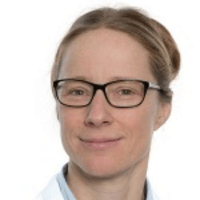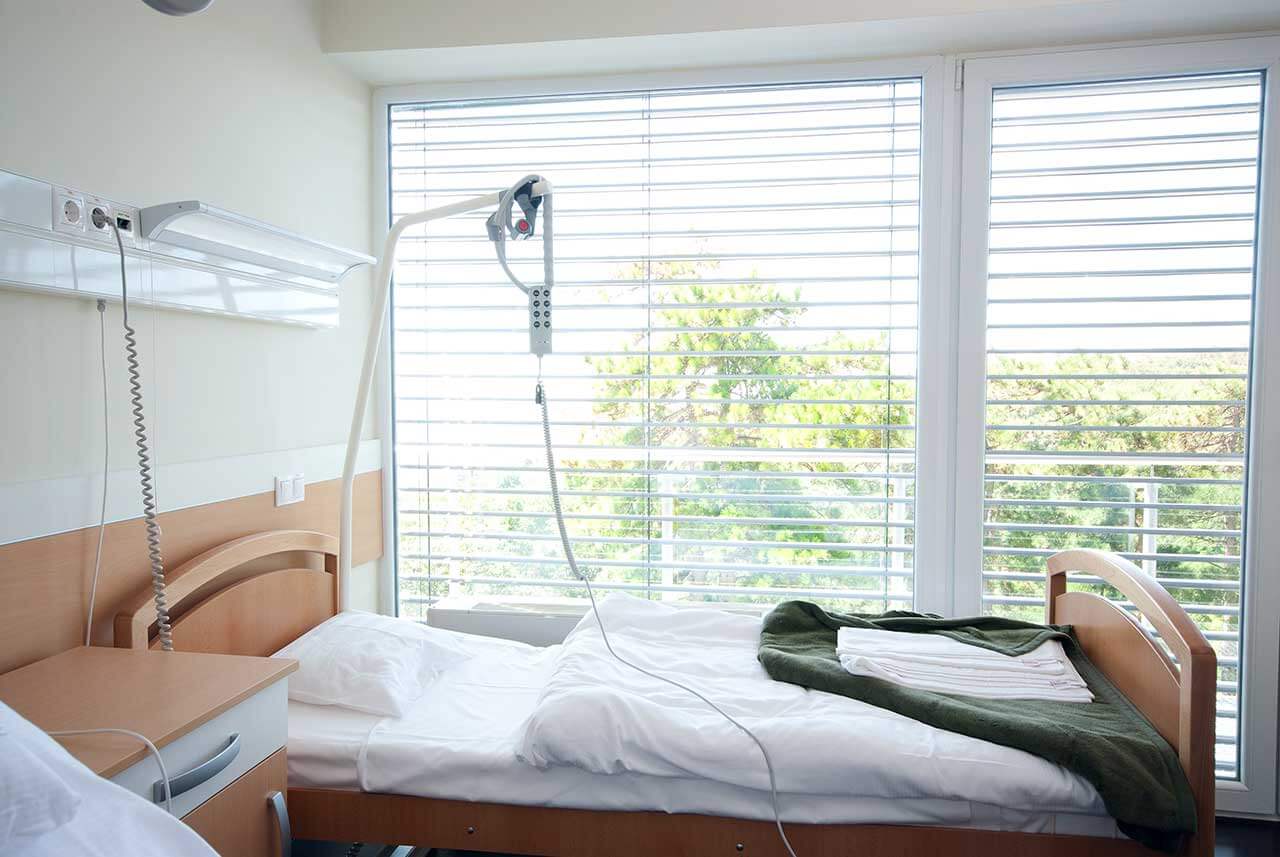
The program includes:
- Primary presentation in the clinic
- medical history, including family history
- complex neurological and orthopedic examinations
- CT / MRI / X-ray examination
- complex neurophysiological examinations
- consultation and curating by a neurourologist
- individual rehabilitation program, which includes:
- bladder training
- bowel training
- propriozeptive neuromuskuläre fazilitation (PNF)
- transcranial magnetic stimulation (TNS)
- orofacial stimulation of Castillo Morales
- functional propriotrening
- various methods of respiratory gymnastics
- Wii Fit training in the use of the balance
- neuropsychological therapy
- functional therapy of the upper extremities (ArmeoSpring)
- functional electrical stimulation / neurostimulation
- kinesitherapy (physiotherapy)
- biocontrol with feedback
- healing deep muscle massage
- neuromuscular electrostimulation
- acupuncture of spasticity and pain syndromes
- occupational therapy
- psycho-educational classes
- Individual physiotherapy
- microcurrent treatment
- fangotherapy / cryotherapy
- antispasmodic drug therapy (incl. Botox)
- mobilization of limb joints
- hydrotherapy / massage therapy / reflexology
- training on special trainers (Lokomat, exoskeleton)
- and etc.
- day-and-night care nurses
- stay in the hospital with full board
- symptomatic and drug therapy
day-and-night |
Service
You may also book:
 BookingHealth Price from:
BookingHealth Price from:
About the department
According to the prestigious Focus magazine, the Department of Neurological Rehabilitation at the Neurological Rehabilitation Clinic RehaNova Cologne ranks among the best German medical facilities in the field of its competence!
The department carries out high-quality rehabilitation of patients with neurological diseases of any severity, complications of neurological diseases and associated pathologies. The department's specialists have excellent qualifications in the field of all phases of rehabilitation – phases B, C, D. The rehabilitation programs are individually adapted for each patient depending on the clinical indications and purposes of rehabilitation. The treatment is based on an interdisciplinary approach, which helps to achieve optimal results. The department is headed by PD Dr. med. Kathrin Gerbershagen.
The department has all modern rehabilitation methods, which allow partial or full reintegration of the patient into everyday life – restoration of mobility, speech, swallowing, cognitive functions, self-care skills (personal hygiene, eating, etc.). A crucial role in achieving the rehabilitation goals is played by the close cooperation of a specialized medical team, which includes physiotherapists, occupational therapists, speech therapists, psychologists, neuropsychologists, art therapists, music therapists and other specialists.
The rehabilitation measures are carried out in specially equipped treatment rooms, including a special kitchen where patients can restore eating habits, a room for restoration of lost cognitive functions with 8 places with computer equipment for training and testing, rooms with specially equipped workplaces for occupational therapy, as well as rooms for art therapy and music therapy, a hall with a therapeutic pool.
The department specializes in neurological rehabilitation in patients after the following diseases:
- Stroke
- Subarachnoid hemorrhage
- Traumatic brain injuries, including polytrauma
- Anoxic brain injury
- Circulatory disorders of the brain
- Malignant and benign brain tumors
- Infectious and parasitic diseases of the nervous system (for example, meningitis, spinal abscesses)
- Polyneuropathies
- Spinal injuries and diseases
- Guillain–Barré syndrome
- Multiple sclerosis
- Parkinson's disease
- Organic personality disorders
- Other neuropathologies
The therapeutic service range of the department includes:
- Physiotherapy (this type of therapy is aimed at the restoration of movement functions with the help of physical impacts on the human body)
- Functional motor therapy based on the Bobath concept
- PNF technique (proprioceptive neuromuscular facilitation)
- Kinesiology taping
- Treadmill workout
- Electrotherapy
- Ergotherapy (the technique is aimed at the restoration of personal hygiene skills, dressing and undressing skills, household tasks, professional skills, etc.)
- Functional motor therapy based on the Bobath concept
- ADL training for the restoration of self-care skills
- Training for restoration of eating and cooking skills
- Dysphagia therapy (F.O.T.T. technique)
- Training for the restoration of memory and attention
- Treatment of neglect syndrome
- Speech therapy (the technique is aimed at the elimination or alleviation of speech and swallowing disorders)
- Treatment of dysphagia (swallowing disorder) with or without tracheal cannula
- Treatment of functional dysphagia according to the Bartolome method
- F.O.T.T. therapy according to Kay Coombes method
- Tracheostomy weaning
- Weaning from artificial lung ventilation
- Treatment of facial paresis using F.O.T.T. and proprioceptive neuromuscular facilitation
- Fiberoptic endoscopic evaluation of swallowing (FEES)
- Fluoroscopic swallowing examination
- Aphasia treatment (acquired speech disorders)
- Individually adapted classes for training speech, perception, reading, writing (for example, using MODAK technique)
- Training for the restoration of speech in everyday life
- Treatment of cognitive dysphasia
- Treatment of dysarthrophonic symptoms (acquired speech and voice disorders)
- Treatment of breathing, voice and articulation disorders caused by lesions of the muscles that are used for speech
- Treatment of paralysis of the muscles that are used for speech
- Trainings for speech restoration using pictograms
- Selection of electronic means of communication
- Clinical neuropsychology (one of the types of psychotherapy, which task is the treatment of consequences of neurological disorders – behavioral disorders, psycho-emotional disorders (depressions, fears), cognitive impairments (impaired memory, attention, thinking, visual perception, etc.))
- Treatment using special computer programs (for example, in the case of attention disorders)
- Training for the elimination of problems with memory and thinking
- Behavioral therapy, systemic psychotherapy methods
- Relaxation procedures
- Bobath therapy (the basis of this method is the interaction between the psyche and the body, as a result of which not a single organ, but for whole body was treated; the aim is the development of controlled and conscious movements with a simultaneous decrease in muscle hypertonicity)
- Other methods of rehabilitation medicine
Curriculum vitae
- 1999 Completion of Professional Training in Medicine, University Hospital Hamburg-Eppendorf.
- 2000 Doctoral Degree in Medicine.
- 2000 - 2004 Assistant Physician, Department of Neurology at the Barmbek Hospital (Hamburg) and the Department of Psychiatry at the Itzehoe Hospital.
- Since November 2004 Assistant Physician, Department of Neurology and Palliative Medicine at the Academic Hospital Cologne-Merheim.
- 2005 - 2007 Medical Specialist, Department of Neurology at the Academic Hospital Cologne-Merheim (last position – Leading Senior Physician).
- Since January 2018 Chief Physician in the Department of Neurological Rehabilitation at the Neurological Rehabilitation Clinic RehaNova Cologne.
Photo of the doctor: (c) RehaNova Neurologische Rehabilitationsklinik Köln gGmbH
About hospital
According to the prestigious Focus magazine, the Neurological Rehabilitation Clinic RehaNova Cologne ranks among the best German medical facilities in the field of its competence!
The clinic began its work in 1999 and today positions itself as a highly specialized rehabilitation center for patients with neurological diseases. The medical team of the clinic specializes in the rehabilitation of phases B, C and D. The main purpose of the clinical activity of each employee of the medical complex is to improve the quality of life of patients by restoring lost physical and neurological functions.
The clinic deals with the treatment of patients with pathologies of varying severity, including strokes, brain injuries after accidents and operations, neuroimmunological diseases of the brain and spinal cord, diseases of the peripheral nervous system, movement disorders, as well as neuropsychiatric disorders.
The treatment is provided by the best German doctors, who have long experience and the necessary clinical knowledge in order to give patients with severe diseases a chance for a normal life, the joy of communication and movement. The damage to brain structures and conductive nerve pathways leads to severe lesions, which require comprehensive treatment and rehabilitation, so the clinic has a multidisciplinary team consisting of care specialists, physiotherapists and occupational therapists, speech therapists, psychologists and assistant physicians.
The clinic has 132 beds for the hospitalization of patients who need neurological rehabilitation. The medical facility also has an intensive care unit with 19 beds and 9 beds with the possibility of mechanical ventilation, a special unit for patients who need isolation, as well as a unit for patients on home ventilation. These structures provide the comprehensive and high-quality medical care, which is aimed at the maximum recovery of the patient, his reintegration into everyday life.
The high quality of medical services is confirmed by certificates of independent quality control organizations, including certification in accordance with the requirements of DIN EN ISO 9001-2008, which the clinic has already passed several times.
Photo: (с) depositphotos
Accommodation in hospital
Patients rooms
The patients of the Neurological Rehabilitation Clinic RehaNova Cologne live in modern and comfortable rooms with all the necessary amenities. The standard patient room includes an automatically adjustable bed, a bedside table, a wardrobe, a table and chairs for receiving visitors, a TV and a telephone. Each room also has an ensuite bathroom with a shower and a special toilet for people with special needs. Many rooms offer beautiful views of the park located close to the clinic.
Meals and Menus
The patient and the accompanying person are offered a daily choice of three menus. If you are on a specific diet for any reason, you will be offered an individual menu. Please inform the medical staff about your dietary preferences prior to the treatment.
Further details
Standard rooms include:
Television
Each room, with the exception of the Intensive Care Unit, has a TV with a large selection of TV channels.
Accompanying person
During an inpatient program, an accompanying person may stay with the patient in a room, a separate room, designed for accompanying persons or a hotel of your choice. Our managers will help you to choose the most suitable option.
Hotel
During the outpatient program, the patient may stay at the hotel. Our managers will help you choose the most suitable option.




